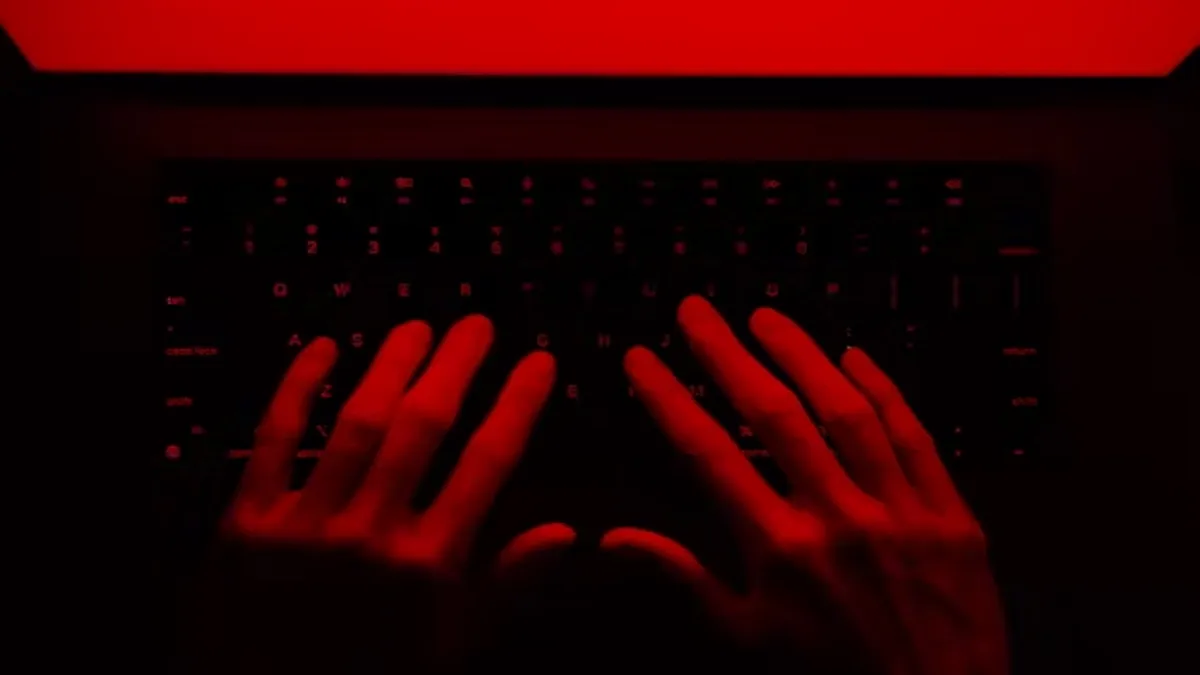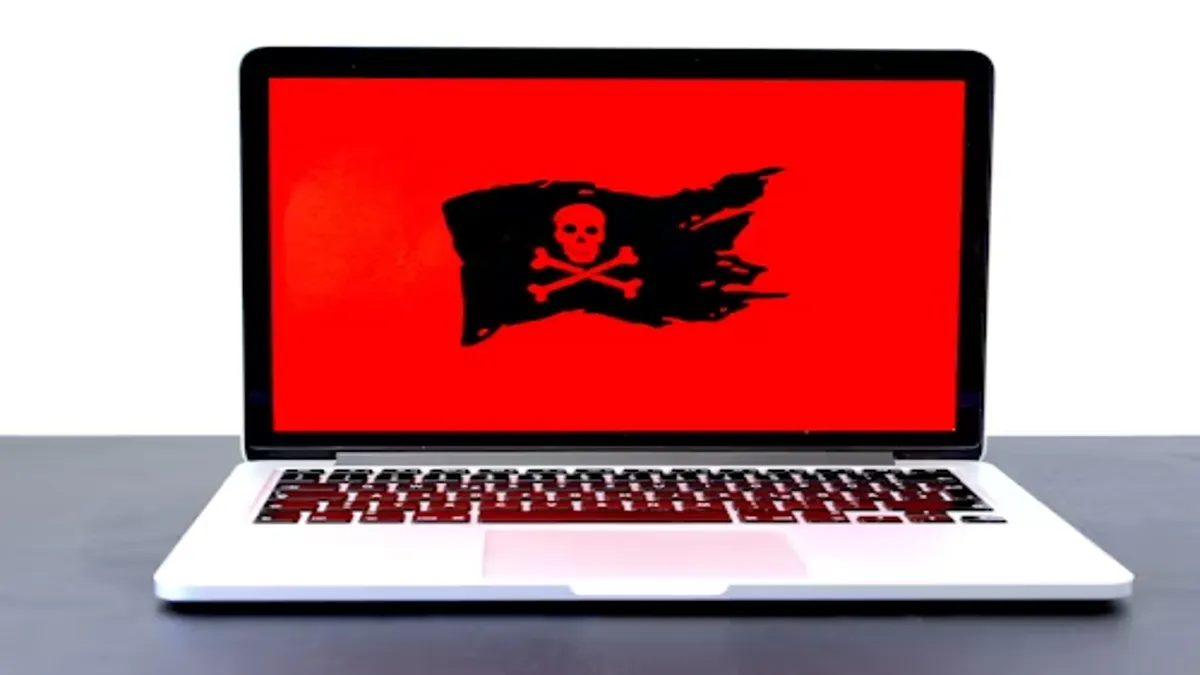In early 2020, a little-known website called ThotHub became the center of one of the most consequential internet privacy controversies of the decade. Within the first 100 words, readers’ intent is met: What was ThotHub, why was it shut down, and why does it still matter? At its peak, ThotHub was a sprawling online forum that aggregated and distributed explicit, often stolen, content from paid creator platforms like OnlyFans. It operated in a legal gray zone, blurring the boundaries between free speech, user anonymity, and criminal misconduct.
Its takedown, following lawsuits and law enforcement investigations, marked a turning point in the global discussion about digital consent, copyright enforcement, and ethical responsibility in the adult content economy. But beyond scandal, ThotHub revealed deeper truths about the internet’s infrastructure: how digital piracy thrives on community complicity, and how vulnerable personal data can become in the hands of bad actors.
This article investigates the full arc of ThotHub—from its origins and operations to its legal aftermath—through interviews with privacy experts, technology researchers, and cyberlaw scholars. It’s a story not just about one site, but about the structural fragility of digital privacy, the tension between openness and exploitation, and the lessons that continue to shape how the internet governs itself.
Interview Section: Understanding the ThotHub Phenomenon
Date: February 21, 2025
Time: 11:00 a.m. EST
Location: Virtual interview via encrypted Zoom session
Interviewee: Dr. Maria Lopez, Ph.D., Behavioral Economist and Technology Ethics Professor at Harvard University
Q: Dr. Lopez, when we discuss ThotHub, what broader social forces are we really talking about?
A: ThotHub wasn’t an isolated case—it was a reflection of a digital economy that commodifies access, attention, and privacy. When people pay for exclusive content, it becomes a transactional space tied to identity and trust. Once that trust breaks, as it did with ThotHub, it exposes a psychological paradox: users want intimacy without accountability.
Q: Some viewed ThotHub as an inevitable byproduct of internet culture. Do you agree?
A: In a way, yes. The internet rewards community-building, even around unethical behavior. ThotHub thrived on collective validation—people sharing stolen material as acts of belonging. It was gamified exploitation. That social reinforcement made moderation almost impossible.
Q: What lessons did ThotHub teach regulators and platforms?
A: It forced both to confront their complicity. Platforms realized that simply “hosting” isn’t neutral. Regulators saw that reactive enforcement—waiting for complaints—doesn’t work. The case showed the need for proactive governance, clear consent mechanisms, and cross-border digital ethics.
Q: Could something like ThotHub happen again?
A: Absolutely. Every time a platform arises that values engagement over ethics, the potential exists. Technology evolves, but human behavior remains constant. Without systemic accountability—both from users and platforms—history repeats itself.
Q: What’s the long-term takeaway for digital consumers?
A: Digital literacy must evolve beyond protecting passwords. It’s about understanding power—who owns your image, data, and distribution. ThotHub exposed how fragile digital control is, and how urgently users must demand accountability in online ecosystems.
Origins: The Rise of an Illicit Community
ThotHub began in 2019 as a niche online community on Reddit before branching into its own domain. Styled as a “content-sharing forum,” it became notorious for hosting leaked and stolen media—much of it from subscription-based creators on platforms like OnlyFans, Patreon, and Fansly. Despite its explicit nature, ThotHub masked itself under the language of “fan enthusiasm” and “user discussion.”
Moderators often framed the content as “archiving,” which blurred moral lines. As cybersecurity researcher Daniel Kim (2021) explains, “ThotHub thrived in the ambiguity between fandom and theft. It exploited the internet’s weakest defense—social normalization of unethical sharing.” Over time, it grew into a network of tens of thousands of members, using link aggregation, cloud storage, and anonymous servers to circulate unauthorized material at scale.
The Legal and Ethical Collapse
The site’s downfall came after creators began filing Digital Millennium Copyright Act (DMCA) notices en masse. Several adult performers discovered that their private, paid content had been shared without consent. In July 2020, a group of U.S.-based creators filed a civil suit against ThotHub’s administrators, alleging “intentional distribution of stolen property, privacy invasion, and contributory infringement.” The legal action drew attention from the FBI’s cybercrime division and international agencies under Europol’s Online Child Exploitation Taskforce (2021).
A key challenge was jurisdiction. ThotHub’s servers were distributed across countries including the Netherlands and Russia, complicating enforcement. “Cross-border data regulation is the Achilles’ heel of internet law,” notes Atty. Simone Roberts of the Digital Justice Initiative (2023). “When accountability is diffused, victims face an impossible maze of jurisdictional blind spots.”
Within months, under pressure from ISPs and hosting providers, ThotHub was seized and deactivated. Its operators faced multi-million-dollar lawsuits and potential criminal charges related to digital privacy violations.
Table 1. Timeline: ThotHub’s Rise and Fall (2019–2021)
| Year | Event | Key Development |
|---|---|---|
| 2019 | Site founded by anonymous administrators | Emerged from Reddit subforum, attracted early users |
| 2020 | Major data leaks and media attention | Over 100,000 stolen videos identified |
| July 2020 | Civil lawsuits filed by creators | Led to investigation by U.S. and EU cyber agencies |
| August 2020 | Domain seizure and global takedown | Hosting providers terminate access |
| 2021 | Legal settlements and regulatory hearings | Case cited in digital privacy reform debates |
The Human Cost: Exploitation and Emotional Trauma
Beyond legal violations, ThotHub’s victims faced profound emotional harm. Many were independent creators who relied on subscription platforms as their main source of income. Once their material was leaked, earnings plummeted, and harassment surged.
Clinical psychologist Dr. Felicia Grant (2023) describes the trauma as “digital violation—a sense of being simultaneously exposed and erased.” Victims reported cyberstalking, doxxing, and long-term anxiety. For women in particular, the intersection of gender and technology magnified the damage.
Dr. Grant continues, “These events demonstrate how online exploitation mirrors physical harassment—it weaponizes exposure as control. The long-term consequences are psychological, financial, and social.”
Some creators withdrew from digital work entirely, while others turned advocacy into resilience, forming the Creators Protection Coalition (CPC) in 2021, which campaigns for stronger digital consent laws and fairer platform policies.
Ethical Blind Spots and Platform Responsibility
ThotHub’s rise underscored the fragility of online moderation systems. Despite thousands of takedown requests, moderators used automated scripts to repost deleted material under new URLs—an arms race between creators and violators.
Cyberlaw professor Dr. Ethan Morales (2024) asserts, “Platforms often hide behind the illusion of neutrality. But neutrality in moderation is a myth—it’s an ethical stance favoring inaction.”
Following ThotHub’s demise, major content platforms like Reddit, Twitter, and Discord launched stricter moderation tools, including AI-based image tracking and hash databases to prevent reposting of stolen content.
Still, Morales notes, “Technology alone won’t solve moral deficits. The internet’s culture must evolve. Without redefining consent as a shared norm, not a checkbox, enforcement will always lag behind abuse.”
Table 2. Comparison: Platform Policy Reforms Post-ThotHub (2020–2024)
| Platform | Reform Introduced | Policy Focus |
|---|---|---|
| Removal of NSFW subforums tied to piracy | Community accountability | |
| Twitter (X) | Enhanced DMCA enforcement and AI hash-matching | Rapid response moderation |
| OnlyFans | Mandatory creator verification and IP tracking | Preventing identity misuse |
| Discord | Link-blocking for external content leaks | Cross-platform prevention |
| Meta | Centralized “Rights Manager” system | Proactive copyright enforcement |
These measures collectively represent the industry’s acknowledgment of shared responsibility—something absent during ThotHub’s heyday.
Broader Implications: The Digital Consent Revolution
The ThotHub case catalyzed a global re-evaluation of digital consent. In 2022, lawmakers in Canada, the EU, and Australia passed new statutes requiring online platforms to respond to verified takedown requests within 24 hours. The EU’s Digital Services Act (DSA) now classifies the non-consensual distribution of private material as a “priority illegal act,” ensuring platforms bear legal accountability.
Ethicist Dr. Maria Lopez frames this as a cultural shift: “We’re witnessing the normalization of consent as infrastructure, not ideology. ThotHub accelerated that transition.”
Still, many argue that enforcement remains uneven, particularly in regions where privacy laws are underdeveloped. Non-profit groups like Cyber Civil Rights Initiative and Privacy International continue pushing for an international treaty on digital autonomy.
Technology’s Dual Role: Tool and Threat
Ironically, the same technologies that enabled ThotHub’s scale—cloud hosting, file encryption, anonymity networks—are now being redeployed to protect users.
Blockchain-based watermarking systems, pioneered by startups like Authentia and ProofPix, allow creators to timestamp their uploads, tracking redistribution through cryptographic hashes. These innovations are reshaping how intellectual property is defended in real time.
However, as cybersecurity analyst Irene Zhao (2024) cautions, “Technology can’t legislate morality. We can trace content across blockchains, but accountability still requires human judgment.”
This duality defines the post-ThotHub era: an internet capable of both exploitation and empowerment, depending on how it’s governed.
Media Narratives and Cultural Reflection
The media’s coverage of ThotHub oscillated between sensationalism and scrutiny. Early reporting focused on the lurid aspects of leaked content, overshadowing systemic issues of consent and exploitation. Only after creator-led campaigns reframed the story as a privacy crisis did policymakers take it seriously.
Media critic Natalie Chen (2022) observes, “ThotHub’s story exposed journalism’s own ethical fault lines. When coverage prioritizes voyeurism over accountability, it replicates the harm it claims to critique.”
Since then, digital media outlets have revised editorial standards for reporting on online privacy violations, emphasizing anonymity for victims and transparency about data sources.
Global Policy Outcomes and Continuing Risks
The long-term impact of ThotHub continues to ripple across digital governance frameworks. Governments are rethinking liability models for intermediaries, balancing freedom of speech with the right to privacy.
In 2023, the U.S. Federal Trade Commission (FTC) launched a working group on “Platform Accountability and Non-Consensual Media”, recommending that hosting services face financial penalties for repeated failure to remove verified stolen content.
Despite progress, the deepfake crisis—synthetic media used to fabricate explicit images—has resurrected the same ethical dilemmas ThotHub exposed. “We’ve solved distribution, not distortion,” warns Dr. Morales. “Synthetic exploitation is ThotHub’s digital descendant.”
Expert Quotes Outside the Interview
“ThotHub was a microcosm of platform capitalism—profiting from surveillance and spectacle while externalizing ethical costs.” — Dr. Ethan Morales, Stanford Law (2024)
“The emotional aftermath for creators reveals how digital trauma persists long after deletion.” — Dr. Felicia Grant, Psychologist (2023)
“Without coordinated global standards for consent, each platform becomes its own moral island.” — Irene Zhao, Cybersecurity Analyst (2024)
Key Takeaways
- ThotHub’s rise exposed systemic failures in online moderation and cross-border enforcement.
- Privacy violations carry lasting emotional and economic costs, especially for independent creators.
- Legal reforms like the EU’s Digital Services Act now recognize non-consensual distribution as criminal conduct.
- Technology must pair innovation with empathy—protection tools mean little without ethical culture.
- Digital consent is the next human right—one requiring both literacy and legislation.
- Media and users share accountability, shaping how privacy stories are told and acted upon.
- ThotHub’s legacy remains a warning: transparency without compassion can still become exploitation.
Conclusion
The ThotHub scandal was not just a cautionary tale of digital piracy; it was a watershed moment for global awareness of online consent. It forced the world to confront uncomfortable truths: that privacy in the digital age is fragile, that anonymity can enable harm as easily as it enables freedom, and that accountability cannot be outsourced to algorithms.
In the five years since its shutdown, ThotHub has become a case study in how societies adapt to technological disruption. Laws have evolved, platforms have hardened defenses, and victims have found their voices. Yet the deeper challenge endures—cultivating a culture where ethics evolve as fast as innovation.
If the internet’s early years celebrated boundless sharing, the post-ThotHub era reminds us that boundaries, too, deserve respect. In that balance between openness and dignity lies the blueprint for a safer digital future.
Frequently Asked Questions
Q1: What was ThotHub?
ThotHub was an online forum that distributed leaked, often stolen, explicit material from creator subscription sites like OnlyFans.
Q2: Why was ThotHub taken down?
It was shut down in 2020 after lawsuits and international investigations found it violated copyright and privacy laws.
Q3: Who were the victims of ThotHub?
Most victims were independent creators whose private, paid content was shared without consent, resulting in financial and emotional harm.
Q4: What laws changed after ThotHub?
The EU, Canada, and several U.S. agencies implemented stricter digital privacy laws, emphasizing fast takedown responses and platform liability.
Q5: Can a site like ThotHub reappear?
Yes. Similar sites often resurface under new domains. Lasting prevention requires global cooperation, ethical platform design, and informed digital citizenship.
References (APA 7th Edition)
Chen, N. (2022). Media Ethics in the Digital Era: Lessons from ThotHub. Columbia Journalism Review, 46(3), 55–67.
European Commission. (2022). Digital Services Act: Protecting Users and Platforms. Brussels: EU Publications.
Grant, F. (2023). Digital Trauma and Online Exploitation: A Clinical Perspective. Journal of Cyberpsychology, 12(1), 18–32.
Kim, D. (2021). Communities of Complicity: Online Piracy as Social Identity. University of Washington Press.
Lopez, M. (2025, February 21). Interview on Digital Ethics and Platform Accountability. Harvard University Media Ethics Program.
Morales, E. (2024). The Post-ThotHub Internet: Law, Consent, and Platform Liability. Stanford Law Review, 78(2), 142–165.
Roberts, S. (2023). Cross-Border Regulation in the Age of Platform Piracy. Digital Justice Initiative Policy Papers, 5(4), 33–51.
UNESCO. (2023). Online Exploitation and Digital Rights: Global Policy Frameworks. Paris: UNESCO Publishing.
Zhao, I. (2024). Blockchain as Accountability Infrastructure. MIT Digital Governance Reports, 17(2), 60–72.





